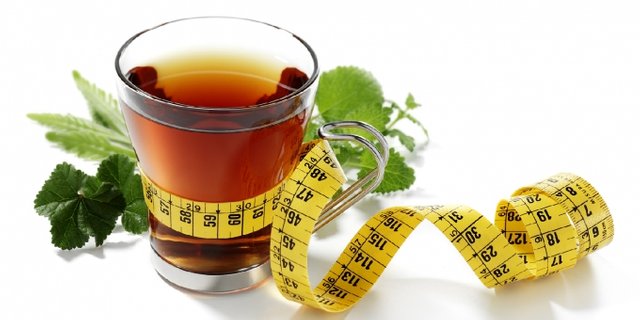Drinking tea may improve your health — here's what to try
Drinking tea has many health benefits. Here's how a daily cup (or two!) can be good for you, along with healthy teas you should try.
No matter what the season, tea can be a tasty beverage since it can be served iced or hot.
But its benefits go far beyond refreshment. There is plenty of research showing that drinking tea can actually improve your health.
A recent study, published in the European Journal of Preventive Cardiology, involved more than 100,000 adults in China and found those who regularly drank tea were less likely to develop atherosclerotic cardiovascular disease or die prematurely from any cause — particularly stroke — compared to others during a seven-year follow-up.
The link was especially strong among habitual tea drinkers — those who enjoyed the beverage at least three times a week. Green tea seemed to have a stronger effect than black tea.
Based on the findings, a 50-year-old frequent tea drinker might develop heart disease almost a year-and-a-half later or live about a year longer than someone who never or seldom drank tea, the study authors wrote.
The results suggest habitual tea consumption may be considered "as an overall health-promoting lifestyle behavior," wrote Vanessa Bianconi, a researcher at the University of Perugia in Italy and the lead author of an editorial accompanying the new research.
Tea's ability to lower blood pressure may be why it could reduce a person's risk of dying of a stroke, the editorial noted.
Tea, especially green tea, is a rich source of flavonoids, and bioactive compounds that can lessen oxidative stress, relieve inflammation, and provide other health benefits, the study authors noted. They cautioned more research was needed to see whether the results in Chinese adults would also apply to people outside East Asia.
Other studies have shown teas can help protect your teeth and your heart, as well as possibly even help to stave off cancer. At the very least, drinking tea is a flavorful way of getting enough fluid into your body each day.
Which type you drink can make a difference. All non-herbal teas are made from the leaves of the Camellia sinensis plant. The amount of time the leaves are processed determines whether you end up with a green, black, or oolong tea.
The green teas are the least processed and tend to have the highest amounts of polyphenols, and the only type that contains the polyphenol, catechin, which is why many studies have been done using only green teas. Certain herbal teas are known for their medicinal values, including soothing the digestive system.
Here are the top 10 health benefits of tea and some options for delicious teas to try:
Tea contains antioxidants.
Antioxidants work to prevent the body’s version of rust and thus help to keep us young and protect us from damage from pollution. Load up on antioxidants with a white tea, which is less processed than black or green tea so it retains more beneficial antioxidants.Tea has less caffeine than coffee.
Herbal blends have no caffeine, while traditional teas have less than 50% of what typically is found in coffee. That means you can consume it without those pesky effects on your nervous system, says Leslie Bonci, nutritionist and owner of Active Eating Advice. If you're trying to switch from coffee to tea, try a chicory root tea like Teeccino, which has a mouthfeel and flavor similar to coffee. Chicory root is also known to help reduce stress and is prebiotic so may be helpful to your gut.Tea may reduce your risk of heart attack and stroke
“There’s a lot of literature out there on tea and heart health,” said Anna Ardine, clinical nutrition manager at Magee-Women's Hospital of the University of Pittsburgh Medical Center. “This is a health effect for which there is the strongest evidence.”
In fact, a study published in 2016 that combined data from a host of earlier reports found a nearly 20% reduction in the risk of heart attack and a 35% reduced risk of stroke among those who drank one to three cups of green tea a day. Those who drank four or more cups of green tea daily had a 32% reduction in the risk of having a heart attack and lower levels of LDL cholesterol. Four cups of green tea may keep you running to the bathroom, but you can get the same benefit from drinking one cup of matcha tea, which is made from ground green tea leaves and is said to be the nutritional equivalent of 10 cups of regular green tea.
Tea may help with weight loss
Research on this isn’t as strong, Ardine said, adding that studies that have shown an effect have depended on the consumption of large amounts of tea, often in pill form.Tea may help protect your bones
Data from recent animal studies have shown that green tea may prevent bone loss. Moringa, a plant that's native to South Asia, has been known for its medicinal properties and is now quickly becoming a mainstream superfood. With more calcium than milk, as well as iron, vitamin A, and K, moringa tea is a great addition to help keep those bones strong.Tea may keep your smile bright
“Japanese researchers have found that tea can decrease tooth loss,” Ardine said. “It changes the pH in your mouth when you drink it and that may be what prevents cavities.” Beyond that, tea, unlike many other beverages does not appear to erode tooth enamel, Bonci said.Tea may boost the immune system
Studies have shown tea can tune up immune cells so they reach their targets quicker. Holy basil or tulsi tea has been used by Ayurvedic practitioners for centuries to help keep the immune system strong after injuries or illnesses thanks to its antibacterial, anti-fungal, and anti-inflammatory properties.Tea may help battle cancer
Studies on this are currently mixed, which means more research is needed, Bonci says. But, in the meantime, “if you’ve got a strong family history of cancer and you want to do anything you can, you might increase your tea consumption,” she added.Herbal tea may soothe the digestive system
“Herbal teas, in particular chamomile, can be good for people with irritable bowel syndrome because it is an antispasmodic,” Bonci said. “And ginger teas can calm nausea.” Get a dose of both with a ginger chamomile tea.Tea — unadulterated, that is — is calorie-free
“It’s a great no-calorie alternative to water,” Bonci said. “It provides so many options for flavor and versatility. You can have it hot or cold. And you don’t have to put anything in it, though you might want to add a cinnamon stick or some ginger. That means you’re able to hydrate with something other than water alone.”
Get yourself a canister of Teabloom's fruit and green tea variety packs and you'll never get bored — or miss the sugar. With all-natural flavors like pineapple, acai berry, strawberry, and litchi, you can easily keep your palate pleased.


For more ways to get healthy in 2020, check out our list of favorite healthy cookbooks, our go-to veggie spiralizer that has over 4,000 positive reviews, or our list of the 17 best keto snacks.